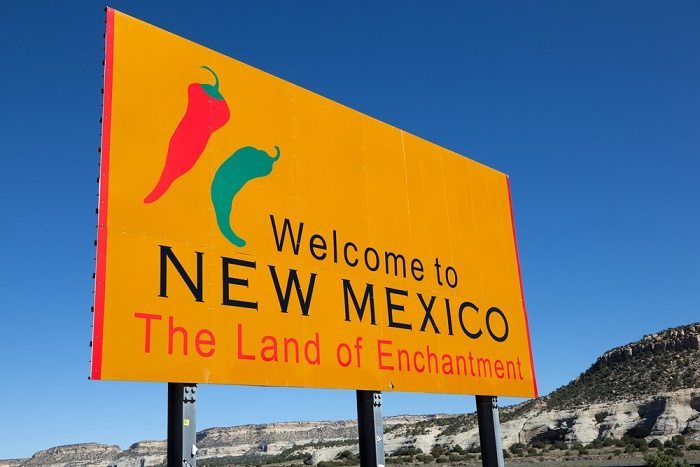Changing Political Landscape Could Spell Trouble for Abortion Access in New Mexico
State lawmakers nationwide have passed legislation to restrict access to reproductive health care, but in New Mexico, attempts to restrict reproductive health care have gained little traction. However, reproductive rights advocates fear that the political landscape may soon change and threaten abortion access not just in the state, but throughout the region.

State lawmakers nationwide have passed legislation to restrict access to reproductive health care, but in New Mexico, attempts to restrict reproductive health care have gained little traction.
Reproductive rights advocates fear that the political landscape may soon change and threaten abortion access not just in the state, but throughout a region rife with some of the country’s most stringent anti-choice policies.
New Mexico has few restrictions on reproductive health care, including abortion. The state requires health insurance to provide coverage of contraception, protects low-income women’s access to abortion, and the state’s constitution provides greater protection for reproductive rights than the U.S. Constitution.
As states surrounding New Mexico have instituted a host of harsh restrictions on abortion, more and more women have come to the state seeking reproductive health care. The situation spurred Whole Woman’s Health, a network of health clinics, to expand its services to Las Cruces in order to accommodate women from Texas, a state that has severely restricted access under its omnibus abortion law, seeking abortion care.
Albuquerque is also home to the Southwestern Women’s Options Clinic, one of only a handful of clinics around the country that provide later abortion care.
Anti-choice activists last year in Albuquerque campaigned for a city-wide ban on abortion after 20 weeks’ gestation. After activists secured enough petition signatures to force the city council to place the issue on the ballot, residents voted down the measure by an overwhelming 55-45 margin.
The defeat caused anti-choice activists to refocus their efforts.
The midterm elections may provide anti-choice activists with an opportunity to push abortion restrictions in the state legislature.
The Democrats’ slim majority in the house could be in jeopardy. If Republicans gain just three seats in the New Mexico house, they will secure a majority for the first time since the 1950s. Republican Gov. Susana Martinez’s popularity coupled with a midterm election that will likely see Republican gains nationwide could be enough to change the political landscape in the state.
“When you have an unpopular Democratic president at midterm, Republicans tend to pick up seats,” Albuquerque pollster Brian Sanderoff told the Associated Press.
Adriann Barboa, field director for Strong Families New Mexico, told Rewire that the possible political changes in the state are a concern. Strong Families New Mexico is a coalition of organizations that promotes policies aimed at improving conditions for marginalized populations.
“We are worried about losing the house,” Barboa said. “We know that if there’s a big shift that we would be facing a whole new committee—which is where we have usually been able to defend women’s reproductive health and get any harmful bills off the table.”
Gov. Martinez will likely win re-election on November 4. She has maintained at double-digit lead in the polls over her Democratic challenger, New Mexico Attorney General Gary King. Martinez has largely avoided injecting herself into debates on social issues, including abortion, while still campaigning as a “pro-life Republican.”
Martinez is viewed as a rising star in the Republican Party. As the 2016 presidential campaign approaches, she will likely be considered by Republican president candidates as a vice presidential nominee.
The activists behind the campaign in Albuquerque believe Martinez is not doing enough to promote anti-choice policies, even though the Republican governor must work with a state legislature controlled by a Democratic majority.
During the 2014 legislative session, there was just one anti-choice bill introduced to restrict access to abortion, but it failed to pass, and there were four bills introduced during the 2013 legislative session that would have regulated abortion, but none received a hearing or a floor vote.
Tara Shaver, one of the activists behind the Albuquerque campaign, told Cosmopolitan that Martinez could be doing more than signing bills to restrict abortion in the state. “She does have authority over the [state] Department of Health, the medical board, these entities that we have tried to utilize to limit the number of abortions in many different ways,” Shaver said.
Republicans could set the state’s legislative agenda if they indeed secure a majority in the house. No longer could Democrats block anti-choice legislation in committee. Changes to parental notification rules for minors seeking abortion could be among the first pieces of anti-choice legislation a new Republican majority could move forward.
Rep. Nate Gentry (R-Bernalillo) is reportedly the leading candidate to take over as speaker if Republicans gain control of the house, and he has expressed support for parental notification laws.
Republican house members during the 2013 legislative session introduced a bill requiring parental notification of minors seeking abortion and another requiring informed consent of pregnant persons seeking abortion.
Even if the Republicans gain control of the house, Democrats will still maintain a majority in the New Mexico State Senate. While New Mexico state representatives are elected every two years, state senators are elected every four years. This could make the 2016 presidential election critical for the future of reproductive rights in not just the state, but throughout the region.
Rachel Maestas, a member of the Feminist Majority Foundation at the University of New Mexico in Albuquerque, told Rewire that it’s critical to continue to protect access to reproductive health care in the face of a Republican house majority.
“We have to fight to keep our clinics open. Not just for Albuquerque, not just for New Mexico but for the entire Southwest,” said Maestas.

